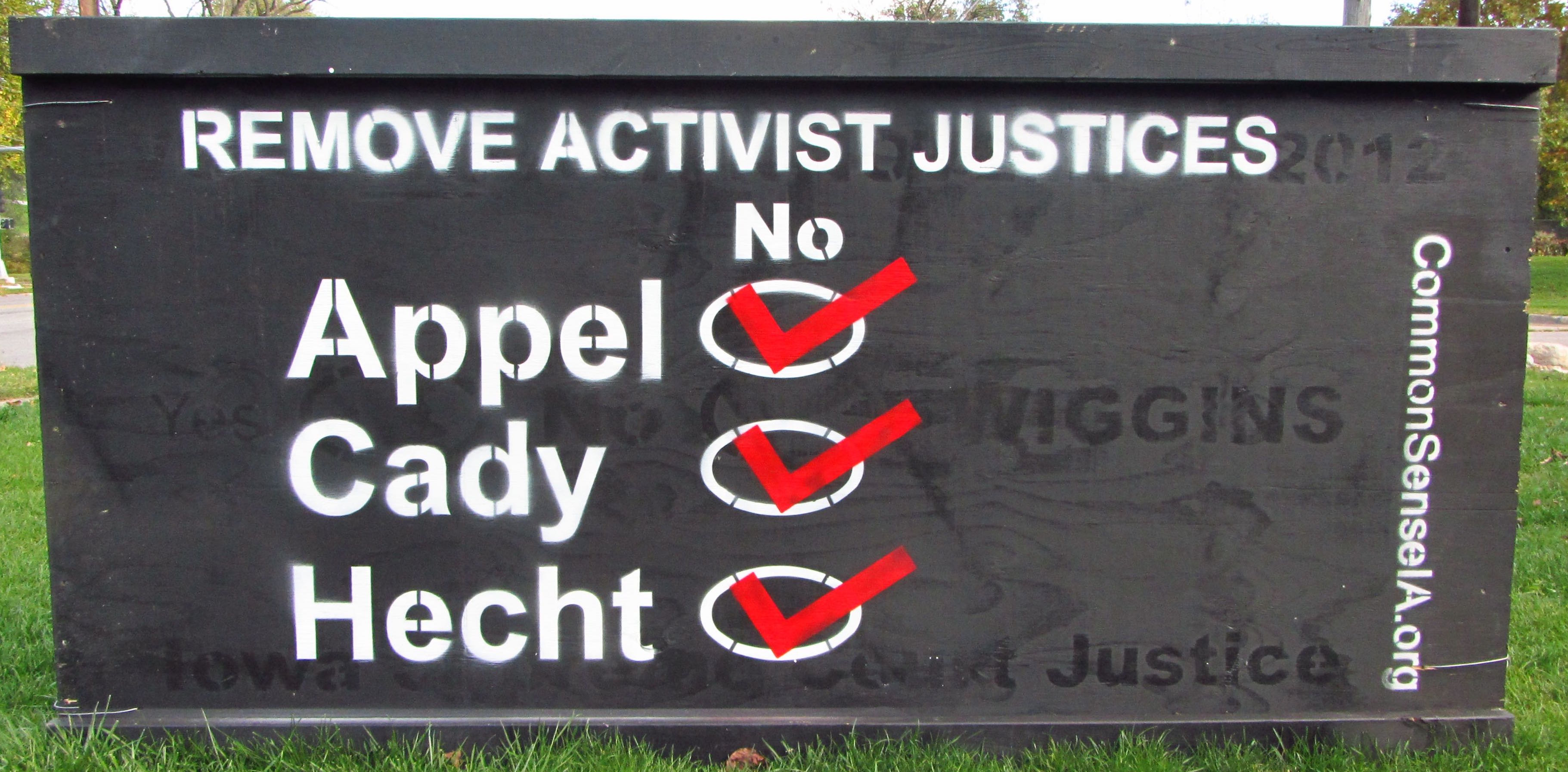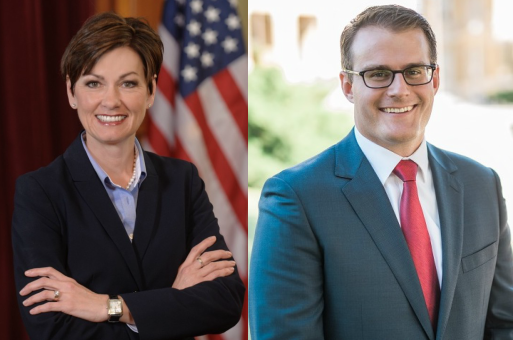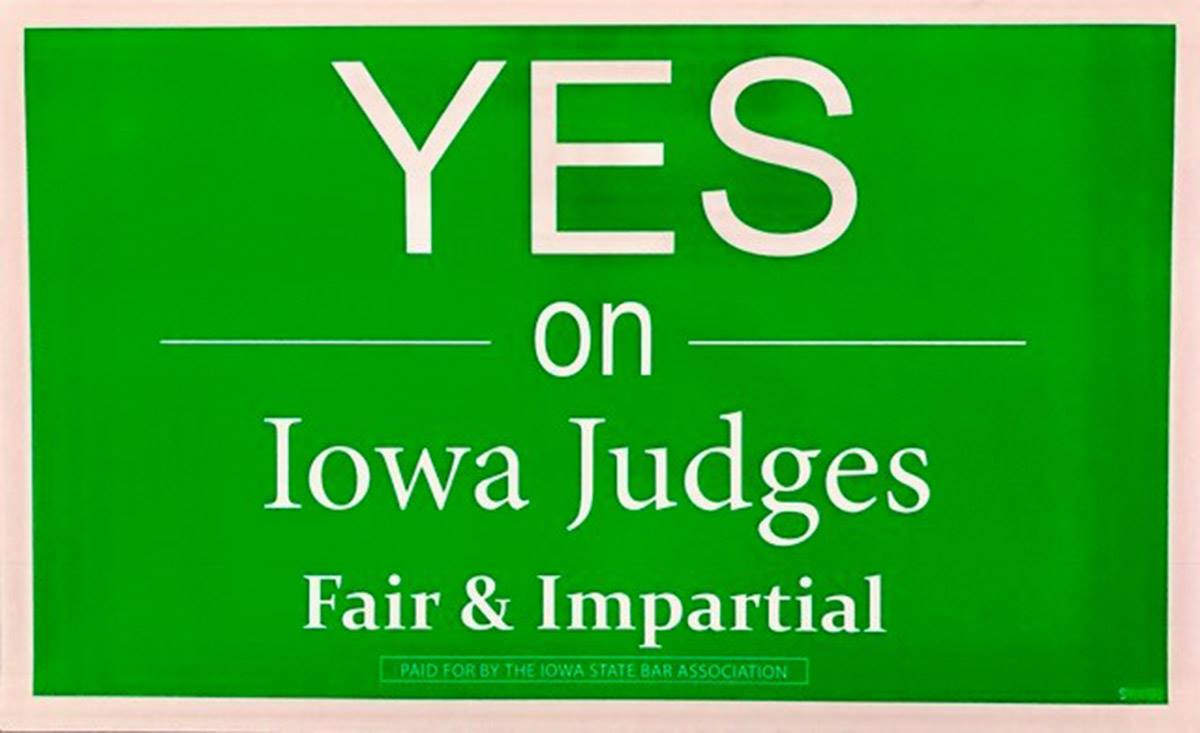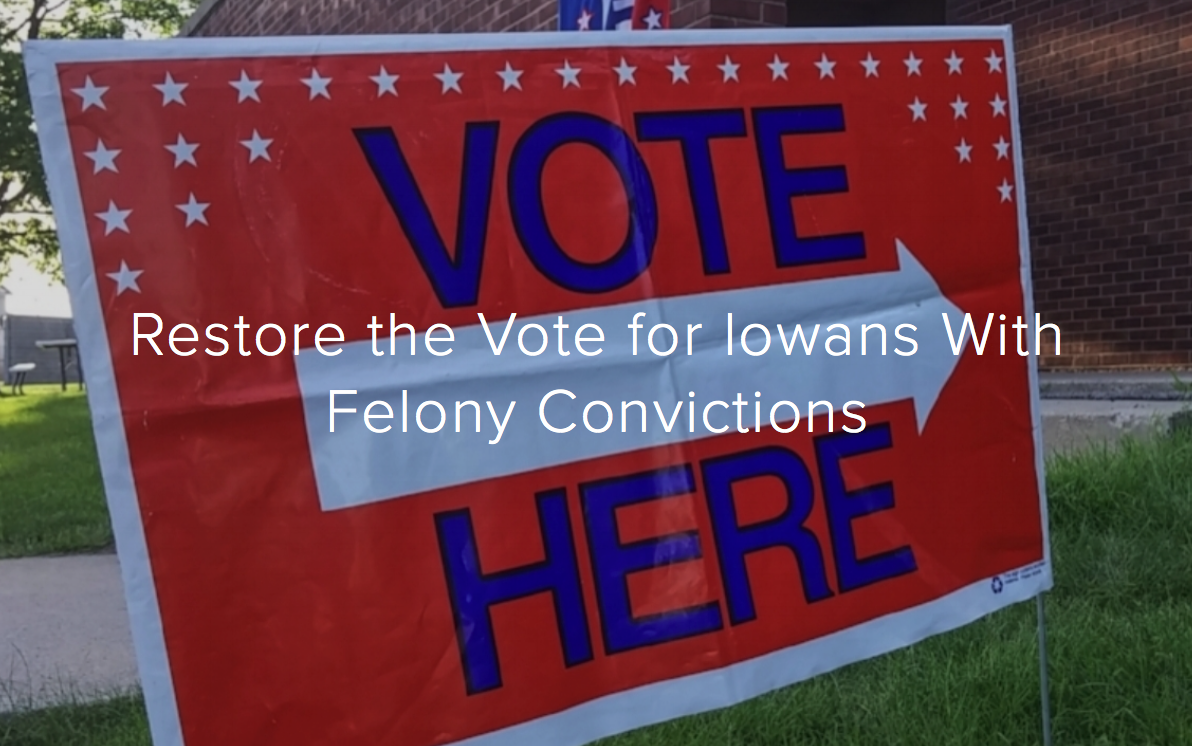Seeking to avoid a lawsuit, Governor Kim Reynolds has picked State Public Defender Adam Gregg as her lieutenant governor to “serve in an acting capacity, fulfilling all duties of the lieutenant governor’s office through the January 2019 inauguration.”
Attorney General Tom Miller issued a formal opinion this month stating that Reynolds will not have the authority to name a new lieutenant governor. Reynolds and many other Republicans attacked Miller for what they called a “partisan” decision, but apparently the new governor doesn’t want to roll the dice on how the Iowa Supreme Court would resolve this question.
Instead, Gregg will have the title of lieutenant governor and the salary associated with the position. According to the governor’s Deputy Chief of Staff Tim Albrecht, “Gregg will ‘operate’ the office of lieutenant governor, but not actually ‘hold’ that office.”
The Reynolds administration acknowledges that Gregg will have no place in the line of succession. Under Article IV, Section 19 of the Iowa Constitution, if there is a vacancy in the governor’s office and the lieutenant governor becomes “incapable of performing the duties pertaining to the office of governor,” the Iowa Senate president “shall act as governor,” with the Iowa House speaker next in line to hold those powers.
I sought comment from Miller and others on whether the state constitution allows someone someone to hold the title of lieutenant governor while serving “in an acting capacity.” (The constitution does not discuss that concept, as far as I can tell.) Miller will hold a press conference later this morning, after which I will update this post. Gary Dickey, who researched these questions as legal counsel for Governor Tom Vilsack in 2004, said via e-mail today, “I know of no limitation on giving titles to employees of the office. Whether they want to call him Lieutenant, vice, or deputy means little so long as he does not attempt assume the constitutional right of succession in the event that Governor Reynolds can no longer serve.” Dickey later told the Associated Press, “As a matter of law, he’s just another staff member of the office, […] It’s a positive sign that she recognizes there are constitutional limitations to the office. I’m not sure that’s always been the case for the last six years.”
Today’s news release and background on Gregg are after the jump.
UPDATE: Miller told reporters today that the “fundamental question” in his formal opinion was related to succession questions. He said he’s “pleased” Reynolds took action today “that would not alter the succession provision,” complying with his opinion on the key constitutional question. He added that the governor can designate anyone she wants to perform certain roles on her behalf. Miller noted, “The one question that remains is the title, acting lieutenant governor. It’s a new position. It’s not a constitutional provision or position,” and it’s not part of the constitutional framework. His staff will do further research on that position. “The key fundamental question here” is who succeeds and Reynolds “complied fully” with his opinion about the Iowa Constitution. Asked whether Reynolds had ruled out any legal challenge, Miller replied that he wouldn’t “I wouldn’t go that far” to make such a “broad statement.” But making clear that Gregg is outside the line of succession “dramatically” changes the landscape for such a lawsuit.
As he said on May 1, Miller said he supports amending the state constitution to allow a lieutenant governor who assumes the governor’s office to appoint a new lieutenant governor.
Miller confirmed that no one on Reynolds’s staff consulted him about their plans. He said the governor’s senior legal counsel Ryan Koopmans called the Attorney General’s office around 9:30 this morning to inform them about the decision.
Asked to comment on Republican Party of Iowa Chair Jeff Kaufmann calling his opinion a “ridiculous partisan stunt,” the attorney general repeated that he was persuaded by the weight of the evidence, including “overwhelming” case law from other states.
Continue Reading...














